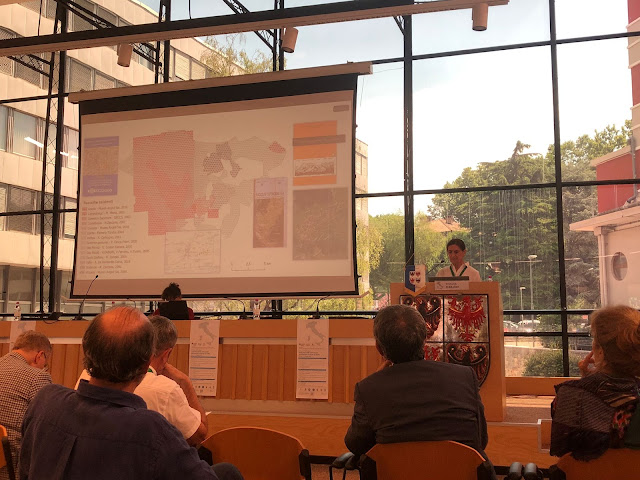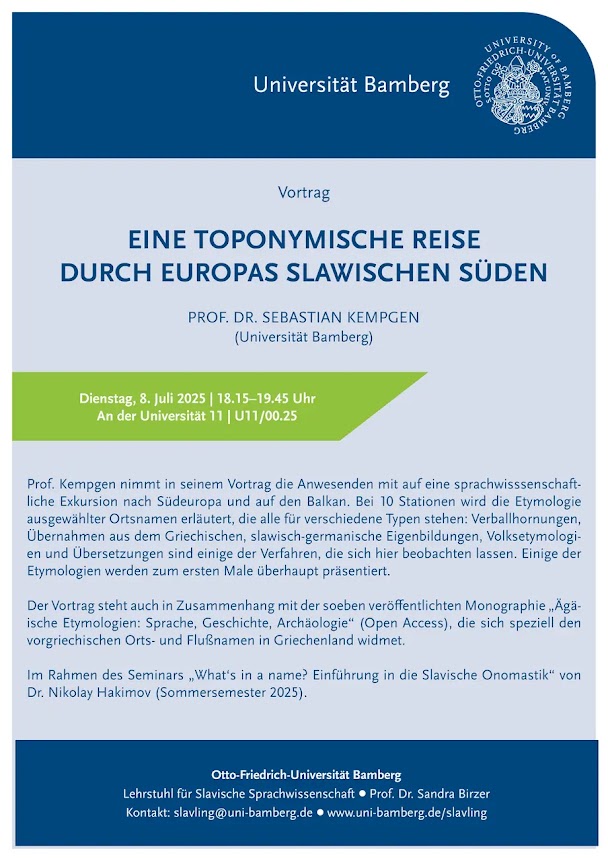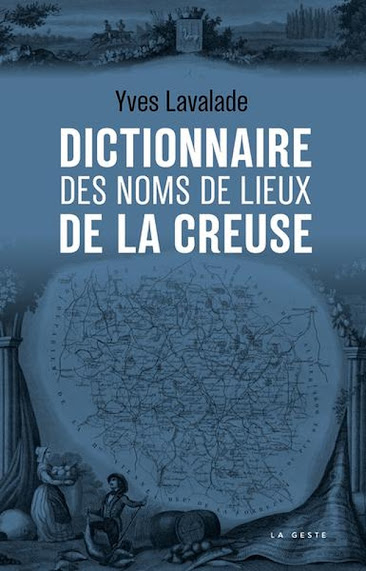ENGLISH REPORT
International Conference Highlights the Role of Place Names in Preserving Linguistic Diversity
The conference provided a platform to explore the interplay between place names (toponyms), identity, memory, and recognition in regions where linguistic minorities are legally recognized and protected. These communities include Ladins, Cimbrians, Mòcheni, as well as speakers of Albanian, Catalan, German, Greek, Slovene, Croatian, French, Franco-Provençal, Friulian, Occitan, Sardinian, among others.
According to Regional President Arno Kompatscher, toponymy is not a mere administrative tool, but a deeply human and cultural issue, rooted in the lived experiences of communities. "It must be approached with a spirit of dialogue and mutual respect, avoiding any dominance or exclusion," he remarked during the opening.
The conference featured a series of thematic sessions organized by geographical and linguistic criteria and was conducted in Italian and English. Two high-level roundtables were held: one with native-speaking international experts and another focusing on the Alpine region, involving directors of minority cultural institutes and public administration officials.
Among the central topics were the legal implications of place naming, the need for updated regulations in light of regional autonomy statutes (particularly regarding the naming of trails and public signage), and the significance of place names in expressing and preserving cultural heritage.
Daniel Alfreider, Vice President and Councillor for Ladin Education and Culture of the Autonomous Province of Bolzano, stressed that "place names are not just geographical markers – they are carriers of history, community memory, and identity." He underlined the importance of protecting and promoting minority place names as part of a broader strategy to foster awareness of Italy's linguistic and cultural richness.
The event closed with an appeal to develop shared legislative instruments to ensure minority languages and place names are safeguarded not only in Italy but also across Europe. The conference thus served not only as a scholarly gathering but also as a call to action for cultural sustainability, diversity, and inclusive governance.
ITALIANO
Toponomastica e minoranze linguistiche: il primo congresso internazionale a Trento celebra la diversità culturale
Dal 2 al 4 luglio 2025 si è svolto a Trento, nella Sala di Rappresentanza della Regione Autonoma Trentino-Alto Adige/Südtirol, il primo convegno internazionale sui nomi di luogo delle minoranze linguistiche storiche in Italia. L'iniziativa, proposta dall'assessore regionale Luca Guglielmi, è stata organizzata in collaborazione con l'Università di Trento, la Divisione Romano-Ellenica del Gruppo di Esperti ONU sui Nomi Geografici (UNGEGN) e la Commissione Congiunta ICA-IGU sulla Toponomastica.L'obiettivo del convegno era duplice: promuovere il patrimonio linguistico delle minoranze riconosciute dallo Stato italiano e stimolare un dibattito interdisciplinare che coinvolgesse accademici, istituzioni, associazioni culturali e rappresentanti delle comunità locali. Le minoranze interessate includono, tra le altre, i ladini, cimbri, mocheni, oltre ai parlanti di albanese, catalano, tedesco, greco, sloveno, croato, francese, franco-provenzale, friulano, occitano e sardo.
Il presidente della Regione, Arno Kompatscher, ha evidenziato l'importanza del tema: "La toponomastica è una questione identitaria e culturale, non solo linguistica. Coinvolge la memoria e l'appartenenza. Deve essere trattata con rispetto reciproco e senza imposizioni."
I lavori, tenuti in lingua italiana e inglese, si sono articolati in sessioni tematiche con focus territoriali e due tavole rotonde: una con esperti internazionali madrelingua, l'altra centrata sull'ámbito alpino, che ha visto la partecipazione dei direttori degli istituti culturali delle minoranze e dei funzionari delle amministrazioni pubbliche.
Un punto centrale è stato la discussione sul futuro della segnaletica toponomastica, in particolare riguardo ai sentieri e ai luoghi pubblici nel contesto delle autonomie speciali. L'assessore Daniel Alfreider ha dichiarato: "I nomi dei luoghi sono memoria viva, identità condivisa, cultura tramandata. Questa conferenza è un'opportunità preziosa per valorizzare le lingue minoritarie e promuovere la diversità culturale come risorsa del Paese".
Il convegno si è concluso con un forte invito a costruire strumenti normativi comuni che tutelino i toponimi delle minoranze linguistiche e rafforzino il ruolo delle comunità nel dibattito istituzionale e culturale nazionale ed europeo.
DEUTSCH
Trient wird zum Zentrum der Toponomastik: Internationale Konferenz beleuchtet Ortsnamen der Sprachminderheiten
Vom 2. bis 4. Juli 2025 wurde die Vertretungshalle der Autonomen Region Trentino-Südtirol in Trient zum Tagungsort einer bahnbrechenden Veranstaltung: der ersten internationalen Konferenz über Ortsnamen der historischen Sprachminderheiten in Italien. Veranstaltet wurde sie auf Vorschlag von Luca Guglielmi, Regionalassessor für Sprachminderheiten, in Zusammenarbeit mit der Universität Trient, der Romano-Hellenischen Division der UN-Expertengruppe für geographische Namen (UNGEGN) und der gemeinsamen Kommission für Toponomastik von ICA und IGU.
Im Mittelpunkt der Tagung stand die Bedeutung von Ortsnamen als kulturelle Ausdrucksformen: Sie repräsentieren kollektive Identität, historische Erinnerung und rechtliche Anerkennung. Diskutiert wurde insbesondere die Situation in Gebieten mit anerkannten Sprachminderheiten wie den Ladiner:innen, Zimbern, Fersentaler:innen, sowie Sprecher:innen des Albanischen, Katalanischen, Deutschen, Griechischen, Slowenischen, Kroatischen, Französischen, Frankoprovenzalischen, Friaulischen, Okzitanischen und Sardischen.
Landeshauptmann Arno Kompatscher betonte, wie sensibel das Thema der Toponomastik sei. Sie betreffe die Lebenswirklichkeit der Menschen und müsse mit "Dialog und gegenseitigem Respekt" angegangen werden. Die Konferenz beinhaltete thematische Panels sowie zwei Diskussionsrunden: eine mit internationalen Fachleuten, die andere mit Fokus auf die Alpenregion.
Ein besonderer Aspekt war die Diskussion über die Beschriftung von Wanderwegen und öffentlichen Einrichtungen in Minderheitensprachen. Trotz früherer Vereinbarungen mit der italienischen Regierung wurden bisher keine gesetzlich bindenden Regelungen umgesetzt.
Daniel Alfreider, Vizepräsident der Autonomen Provinz Bozen, hob hervor: "Ortsnamen sind keine Zufälligkeiten – sie sind Ausdruck von Erinnerung, Identität und kulturellem Erbe." Er rief dazu auf, Minderheitensprachen als Ressource für ein vielfältiges Europa zu begreifen und konkrete gesetzliche Grundlagen zu schaffen.
Die Konferenz wurde nicht nur als wissenschaftliches Ereignis wahrgenommen, sondern als Appell für kulturelle Nachhaltigkeit, Vielfalt und gemeinsame Verantwortung in der Namensgebung von Orten in Europa.

















.jpg)



